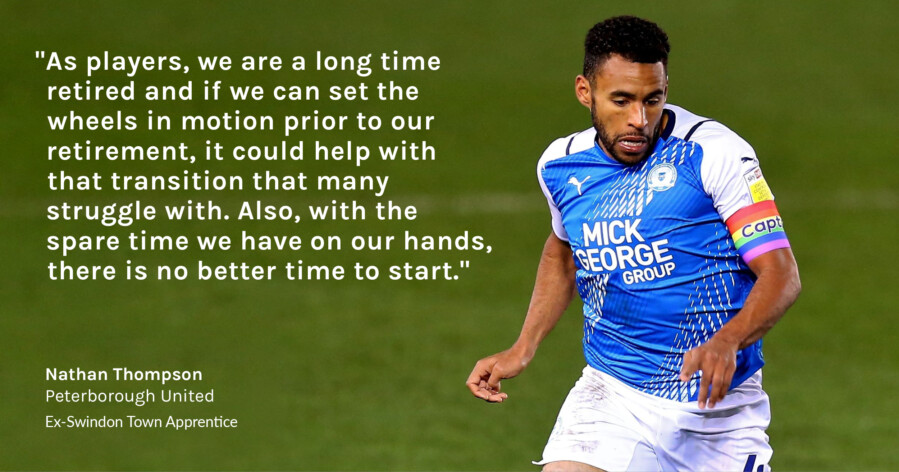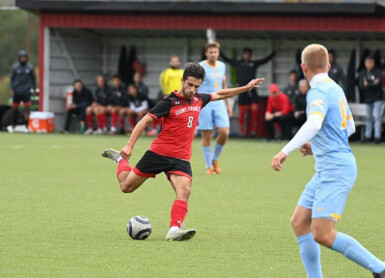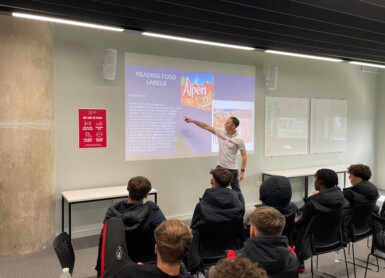Studying alongside your football commitments can offer a healthy distraction and give you something to focus on away from the pressures of a changing room. It can also help you plan for life after football, whether that be at 18 or 35, making the transition into everyday life a much smoother process.
Here are four professional EFL players who are currently in Higher Education alongside their football:
Nathan Thompson | Peterborough United | Midfielder | 32 | Apprentice at Swindon Town
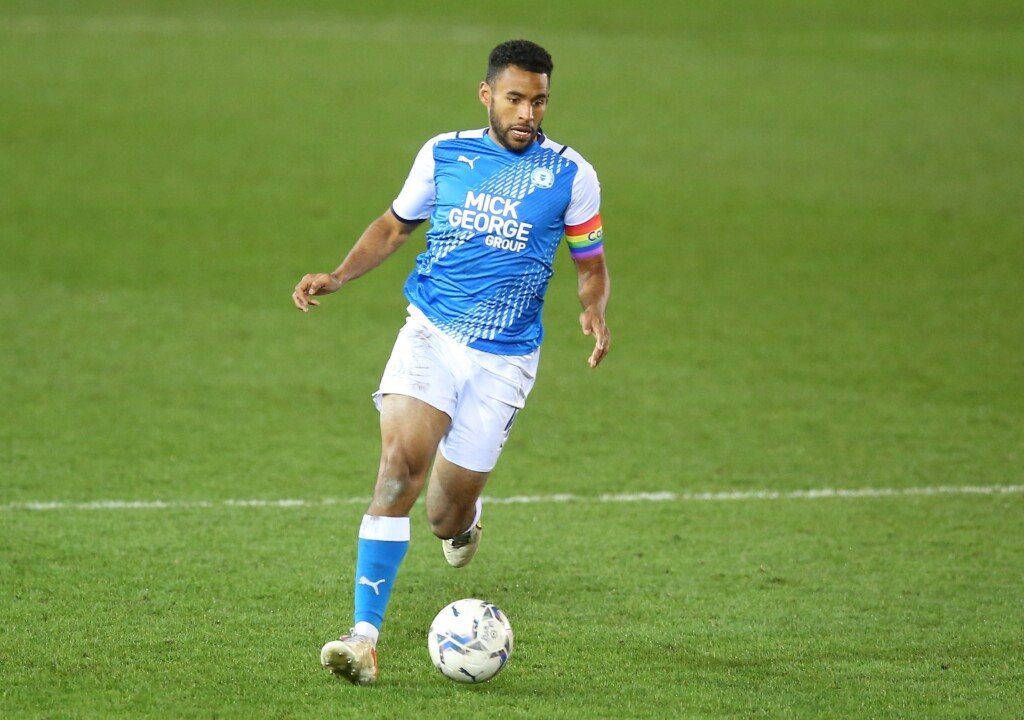
- What are you studying?
I’m currently working towards a Master in Sports Directorship. The course is based out of the Etihad campus and is through VSI in association with UCFB and East London University.
2. Did you get help from the PFA with this?
The PFA was able to contribute 50% towards the course fee, which with the cost of education, I’m extremely grateful for. As players, we really should be making use of this incentive.
3. What was the reason behind your decision to study and why did you choose this particular qualification?
The business aspect of football has always interested me, however with a lack of experience within the decision-making aspects of the sport, I thought it would be very difficult to transition into similar sorts of roles. This qualification has given me the opportunity to step outside my comfort zone and enhance skills I have neglected since leaving school. In addition, it’s also allowed me to network and connect with like-minded individuals.
4. Does it provide you with a healthy distraction away from football?
This has been one of the biggest unforeseen benefits of the course. Although I have always argued for the advantages of studying, having a focus like an assignment has allowed me to keep perspective on what is happening on the pitch. Striving for promotion at the back end of last season, the games felt highly pressured, having a release that allowed me to completely switch off from football was extremely beneficial.
5. What would you say the challenges are when juggling education and football?
Whenever players have interests away from football – whether that’s education or businesses, they are held to a higher standing. By this I mean, whenever a player has a bad game whilst having additional interests away from the pitch, people assume that is the reason behind poor performance. As players, we expect that from the press and public but it can be harder to accept from people like coaching staff and management. This can be a reason why many are reluctant to start.
6. What would your advice be to footballers who are thinking of enrolling on a higher education course alongside their football?
Give it a go, try to enroll in a course that provides support throughout so that you are not left on your own with just workbooks. This can be demoralising and unmotivating. As players, we are a long time retired and if we can set the wheels in motion prior to our retirement, it could help with that transition that many struggle with.
7. And, finally, looking ahead to life after football, do you think that what you are doing now will help and what career do you see yourself going into?
What I have to come to realise is that it may not be directly the avenue I aim to go down once I retire, however, the skills that the course has taught me, will forever hold me in better stead. I am therefore forever grateful for taking the plunge and enrolling in higher education.
Charlie Raglan | Cheltenham Town | Defender | 28 | Apprentice at Port Vale
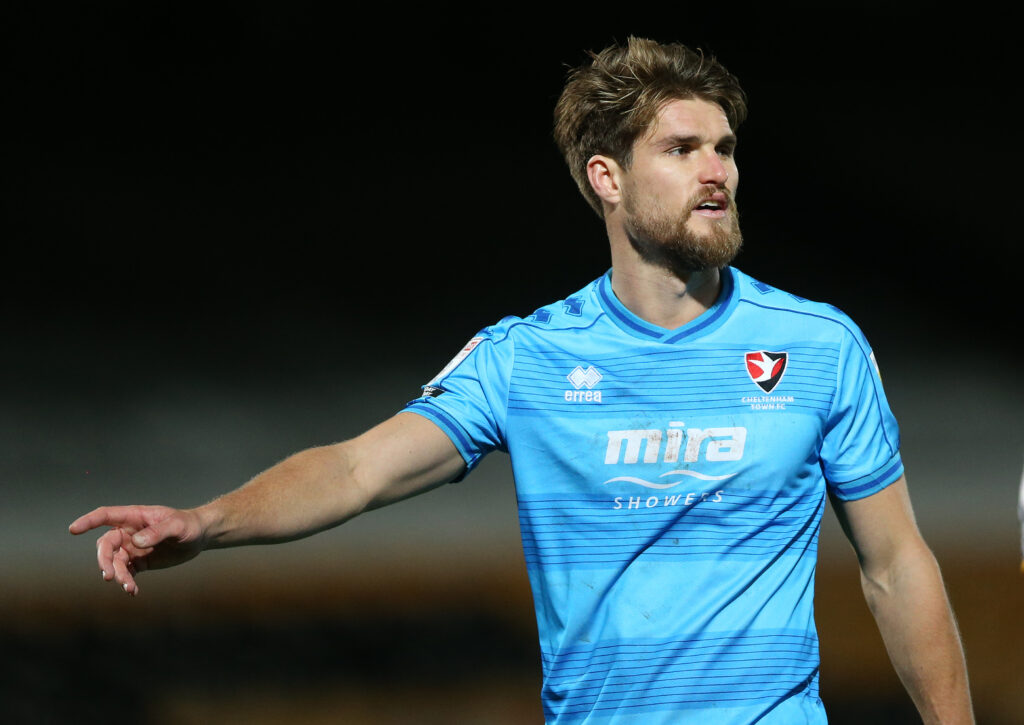
- What are you studying?
Sport and Exercise Science at Manchester Metropolitan.
2. Did you get help from the PFA with this?
I got advice and spoke to other players. I also spoke to people who aren’t footballers, who have done this course. I get a bursary every year. It’s not as much as it used to be, but it certainly helps.
3. What was the reason behind your decision to study and why did you choose this particular qualification?
It was a case of having a qualification at the end of my career. Football, as we know, can be quite precarious, and I knew I’d be 30 by the time I completed the course if all goes as planned. Imagining myself at that stage in my life without any qualifications was the biggest factor in me going ahead with it. The aim is to be more attractive to future employers.
4. Does it provide you with a healthy distraction away from football?
It used to! I’ve recently become a father to twins, so I’m distracted as it is! On a serious note, I think we know that as footballers, in general, we get a bit more time to ourselves than the average person who works 9-5, Monday to Friday. So, I certainly see it as better use of the time we do get. It doesn’t necessarily have to be a degree, but I’d say doing something away from football, something that you can chip away at with one eye on the future.
5. What would you say the challenges are when juggling education and football?
The biggest challenge for me now is time. We all have moments when those couple of hours assigned for studying turn into watching a TV series. It can also be a case of discovering when you work best. I know I work better in the morning and don’t mind waking up a bit earlier to do the work because I know I won’t be as productive later in the day.
6. What would your advice be to footballers who are thinking of enrolling on a higher education course alongside their football?
Do your research on the subject and make sure you choose wisely. It sounds obvious, but you’re committing to this subject for the next 2-5 years, so you want to get it right. My biggest advice would be to just start thinking about the future. Ask yourself what is out there; use the PFA and LFE. I think most players will want to get to the end of their careers and not be panicking about what they’re going to do next.
7. And, finally, looking ahead to life after football, do you think that what you are doing now will help and what career do you see yourself going into?
I hope this will help! My CV will look much healthier with an undergraduate degree on it. The subject opens different pathways throughout the sports science world. When the time comes, it might not be for me, but I feel I’ll look back and be proud that what I did was right at the time.
Matt Smith | Salford City | Striker | 32 | Apprentice at Cheltenham Town

- What are you studying?
I am studying for an MBA (Masters in Business Administration) from the University of Manchester.
- Did you get help from the PFA with this?
Yes, absolutely. It’s an advanced degree, so it costs a little more than your conventional masters degree so at £42,000 (20% discount because I graduated from Manchester with a Bachelors before playing football) the PFA contributed £10,000 to help me out. The rest was self-funded.
- What was the reason behind your decision to study and why did you choose this qualification?
I wanted to use my downtime more productively as I got later into my career. I’m keen to move into the business world post-football and so felt a top-end masters degree would equip me with a greater skill set for my next chapter and be a beneficial use of my downtime.
- Does it provide you with a healthy distraction away from football?
Absolutely. It also provides me with an additional focus away from football. I would say it is a nice element of escapism from the mental rigours of professional sport.
- What would you say the challenges are when juggling education and football?
The volume of work has been quite overwhelming at times. I’ve worked late into the night and on my days off, so alongside a tiring football schedule and family commitments it can be quite taxing. But as long as you plan your time accordingly and work out a schedule and stick to it, it’s fine.
- What would your advice be to footballers who are thinking of enrolling on a higher education course alongside their football?
Do it! Don’t think too much about it as you can talk yourself out of it. But do it! Football is a short career and there’s a lot of life to live after. Equip yourself with the best skill set possible, relevant to what industry or area you’d like to move into. As players, we have a lot of additional time in our day to put our minds to something extra-curricular and it’s best to start spinning plates sooner rather than later. You don’t want to get to the end of your career and think ‘now-what?’
- And, finally, looking ahead to life after football, do you think that what you are doing now will help and what career do you see yourself going into?
I’d love to stay in football but in a more business-related capacity to compliment my business acumen. Football has been and will always be my network, so whether that’s starting my own business (in the field of sport) or working at a more senior level in a football club, it’s something I’d like to do in my next chapter.
Jamie Proctor | Port Vale | Striker | 29 | Apprentice at Preston North End
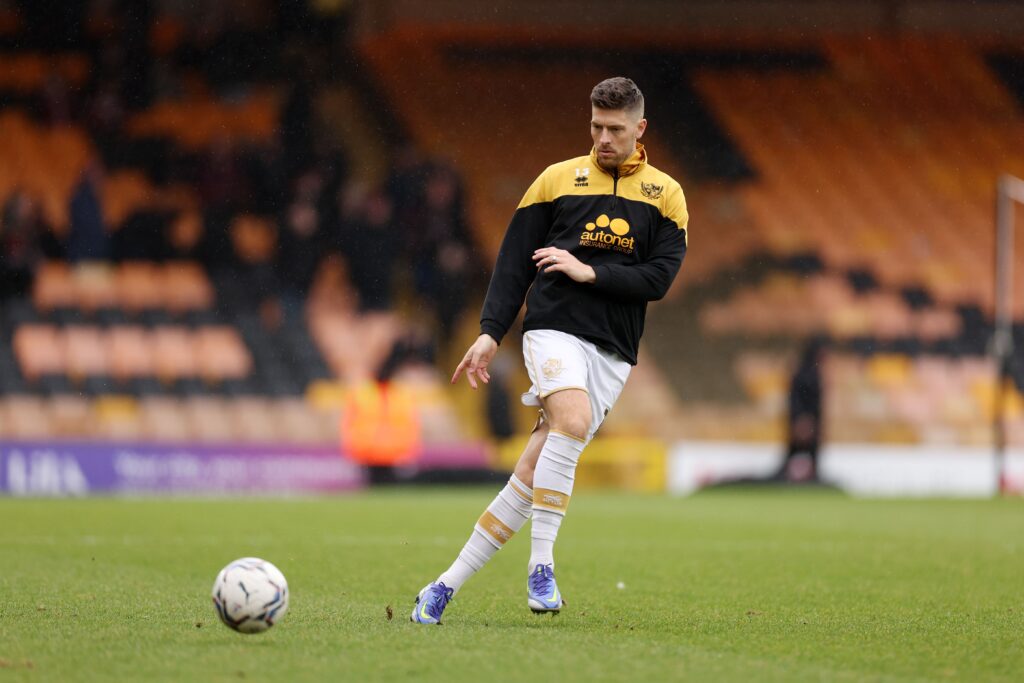
- What are you studying?
I am currently studying for my Financial Planning Diploma and hoping to go into Financial Advice once football comes to an end. I have also completed a business degree; an accounting degree; I achieved a First Class in Sports Journalism & Broadcasting degree and I am coming to the closing stages of my PGCE teaching qualification. I have also completed various modules through the Open University.
2. Did you get help from the PFA with this?
The PFA has been great in helping me with my education. They part-funded my journalism degree and any other study materials have been subsidised, alongside exam fees.
3. What was the reason behind your decision to study and why did you choose this qualification?
I always enjoyed school and regardless of my sporting success at a young age, I continued to study for my own personal pride. I left high school with 11 GCSEs, six of them A or above. Not every young player feels this way. It is so easy to get caught up in the emotion of ‘I want to be a footballer’ or ‘I have a professional contract, I am all set for the future’.
4. Does it provide you with a healthy distraction, away from football?
My argument is that studying and education, in general, gives me purpose. It aids as a distraction when football isn’t going too well. I don’t buy into the ‘I am just a footballer’ nonsense. I don’t like the umbrella term. I don’t like the stereotypes. Your football career will come to an end no matter what. You need to wake up every day knowing who you are as a person and you need to have an identity that isn’t wrapped around your football.
5. What would you say the challenges are when juggling education and football?
Studying whilst maintaining a full-time football career is difficult. I was told at many clubs to concentrate on my football and forget everything else. Managers want you to be fully focused on the here and now.
6. What would your advice be to footballers who are thinking of enrolling on a higher education course alongside their football?
Just do something. You have absolutely no idea what career you want to go into when all you have known is football. My advice is to be proactive. As athletes, we have a huge number of transferable skills. Teamwork, resilience, competitiveness, professionalism, to name a few.
7. And, finally, looking ahead to life after football, do you think that what you are doing now will help and what career do you see yourself going into?
I love the idea of helping individuals, particularly the younger generation. This was the reasoning behind the decision to complete my PGCE. Despite this, I am a firm believer in creating your own success and being time rich. The finance industry has always intrigued me, the combination of helping secure other people’s futures whilst building up a successful one of my own is a fascinating blend. My intentions for the future have always been to forge a career that gives me elements that professional football hasn’t. The main thing is to make my family proud and work towards a second career that allows me to be time rich whilst helping others.
Ahead of the Game features in Issue 43 of LFE’s Touchline magazine
